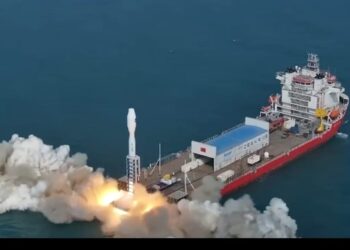Introduction: Escalating Tensions in the Middle East
In a significant escalation of its ongoing conflict with the Palestinian resistance, Israel’s political and security cabinet has formally approved a plan to seize control of Gaza City, the largest urban center in the besieged Gaza Strip. The decision, reported by Reuters, came only hours after Prime Minister Benjamin Netanyahu openly declared his intention to place the entire territory under Israeli military control.
This development marks a crucial turning point in the ongoing war, raising alarm over humanitarian consequences, regional stability, and the future of Palestinian self-determination. While Israel claims the move is essential to defeating Hamas, Palestinian factions view it as part of a broader strategy of genocide, forced displacement, and permanent occupation.
Details of the Cabinet Decision
According to an official statement from the Israeli prime minister’s office, the plan outlines two main objectives:
- Seizing Full Control of Gaza City: Israeli Defense Forces (IDF) will prepare for an intensified military campaign aimed at capturing strategic positions in Gaza’s northern districts, with Gaza City as the central target.
- Provision of Humanitarian Aid Outside War Zones: Israel has indicated it will coordinate humanitarian corridors to supply aid to civilians outside active combat zones. This is presented as a measure to minimize civilian casualties, although critics question its feasibility given the destruction of much of Gaza’s infrastructure.
The statement further revealed that a majority of the political and security cabinet rejected an alternative proposal, arguing it would neither eliminate Hamas nor secure the release of Israeli hostages.
Gaza City: Strategic and Symbolic Importance
Gaza City, situated in the northern part of the Gaza Strip, is home to a large portion of the enclave’s population and serves as its administrative, economic, and cultural hub. Controlling this city is viewed by Israel as key to dismantling Hamas’s operational structure.
However, Gaza City’s dense population — coupled with the already severe humanitarian crisis caused by months of bombardment, siege, and displacement — makes any large-scale military incursion particularly dangerous for civilians.
Political and Military Process
While the security cabinet has approved the operational framework, the plan still requires the endorsement of the full Israeli cabinet. According to government sources, this decision may not be finalized until Sunday, leaving a brief window for potential diplomatic intervention.
Analysts note that Israel’s war strategy is increasingly shaped by hardline voices within the cabinet, with limited tolerance for negotiations perceived as favorable to Palestinian demands.
Hamas Responds: Accusations of Genocide and Displacement
Shortly after news of the Israeli decision broke, Hamas issued a strongly worded statement accusing Netanyahu of plotting continued genocide against the Palestinian people. The group condemned the move as part of a broader plan for forced displacement, a reference to fears that Israel intends to push Gaza’s population into Egypt’s Sinai Peninsula.
The statement cited Netanyahu’s recent interview with the American broadcaster Fox News as evidence of his unwillingness to engage in meaningful peace talks. According to Hamas, the Israeli leader’s rhetoric represents a complete retreat from recent ceasefire negotiations, despite claims from mediators that the two sides were nearing a final agreement.
Ceasefire Talks Collapse
Ceasefire negotiations, mediated by Qatar, Egypt, and the United States, had been ongoing for weeks. Reports suggested the talks were close to producing a framework for a mutual cessation of hostilities and an exchange of prisoners and hostages.
However, Hamas claims that Netanyahu’s sudden withdrawal from the talks was a deliberate political maneuver to prolong the war, thereby strengthening his domestic standing among far-right allies.
Accusations of Sacrificing Hostages
One of the most severe charges leveled by Hamas is that Netanyahu is willing to sacrifice Israeli hostages held in Gaza to serve his “personal interests and extremist agenda.” This accusation taps into a growing controversy within Israel, where families of hostages have accused the government of prioritizing military objectives over the safe return of their loved ones.
International Reaction and Concerns
The approval of this plan has sparked concern across the international community. Human rights organizations warn that a full-scale assault on Gaza City could result in catastrophic civilian casualties, worsening an already dire humanitarian crisis. The United Nations has repeatedly called for the protection of civilians and the upholding of international humanitarian law.
Meanwhile, regional powers, particularly Egypt and Jordan, are watching developments closely, fearing that the destabilization of Gaza could spill over into their territories.
Humanitarian Implications
Gaza is already facing one of the worst humanitarian crises in recent history. Continuous bombardments, destruction of infrastructure, and a near-total blockade have left over two million residents without reliable access to clean water, electricity, or medical care.
International aid agencies, including the Red Crescent and UNRWA, have warned that further escalation could push Gaza’s population to the brink of famine. The Israeli plan’s promise of humanitarian aid “outside war zones” has been met with skepticism, given past reports of aid trucks being delayed or blocked at checkpoints.
Netanyahu’s Strategic Narrative
Netanyahu has framed the operation as a necessary step to ensure Israel’s long-term security, portraying Hamas as an existential threat that must be eradicated completely. In his Fox News interview, he reiterated that military control over Gaza is the only way to prevent future attacks on Israel.
However, critics argue that this approach ignores the underlying political realities, including decades of occupation, blockade, and failed peace processes, which fuel Palestinian resistance.
Long History of Conflict
The Gaza Strip has been a flashpoint in the Israeli–Palestinian conflict for decades. Since Israel’s unilateral disengagement in 2005, Gaza has been under the control of Hamas and subjected to a tight Israeli blockade. Multiple wars — including those in 2008–09, 2012, 2014, and the recent conflicts — have left the territory devastated and its population traumatized.
This latest development appears to be part of a long-term strategy by Israel to reshape Gaza’s political landscape in its favor, though it risks triggering wider regional instability.
Reactions Within Israel
While Netanyahu’s hardline coalition supports the plan, there is division among the Israeli public. Some view the operation as vital for national security, while others see it as a reckless gamble that will only deepen Israel’s isolation on the world stage. The hostage crisis remains a particularly sensitive issue, with protests continuing in Tel Aviv and other cities.
Global Diplomatic Landscape
The United States, Israel’s closest ally, has so far refrained from openly criticizing the plan, though officials have privately expressed concern over the humanitarian fallout. European Union leaders have urged restraint and called for renewed peace talks, while Arab League members have condemned the move as a violation of international law.
Conclusion: A Pivotal Moment for Gaza and the Region
Israel’s decision to prepare for the seizure of Gaza City marks a new and dangerous phase in an already protracted conflict. While Israel insists the move is aimed at dismantling Hamas and securing the release of hostages, Palestinians and much of the international community see it as part of a broader strategy of occupation and displacement.
The coming days will be critical in determining whether this plan is executed, modified, or halted through diplomatic pressure. Regardless of the outcome, the humanitarian stakes for Gaza’s population — already enduring unprecedented hardship — remain tragically high.

























